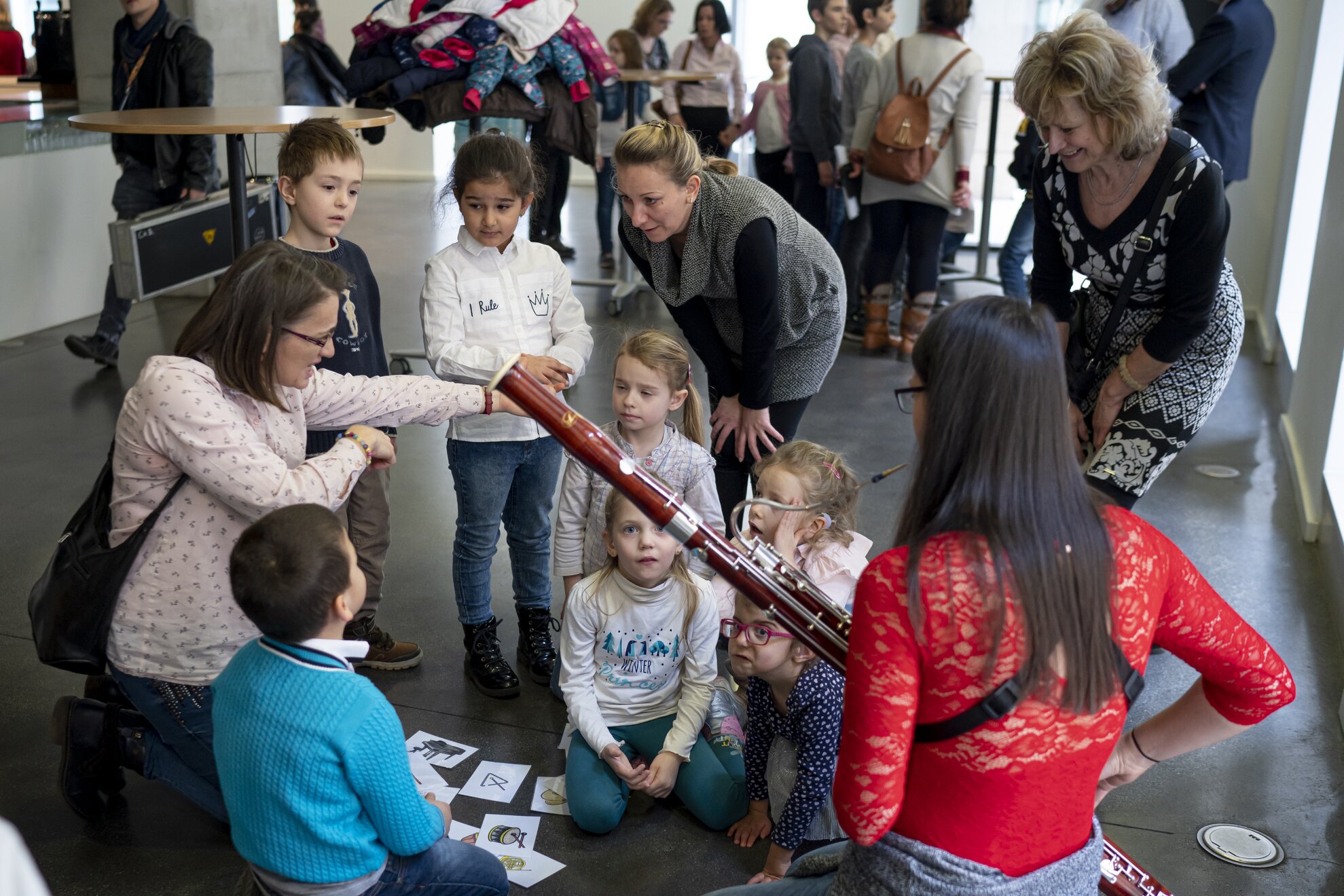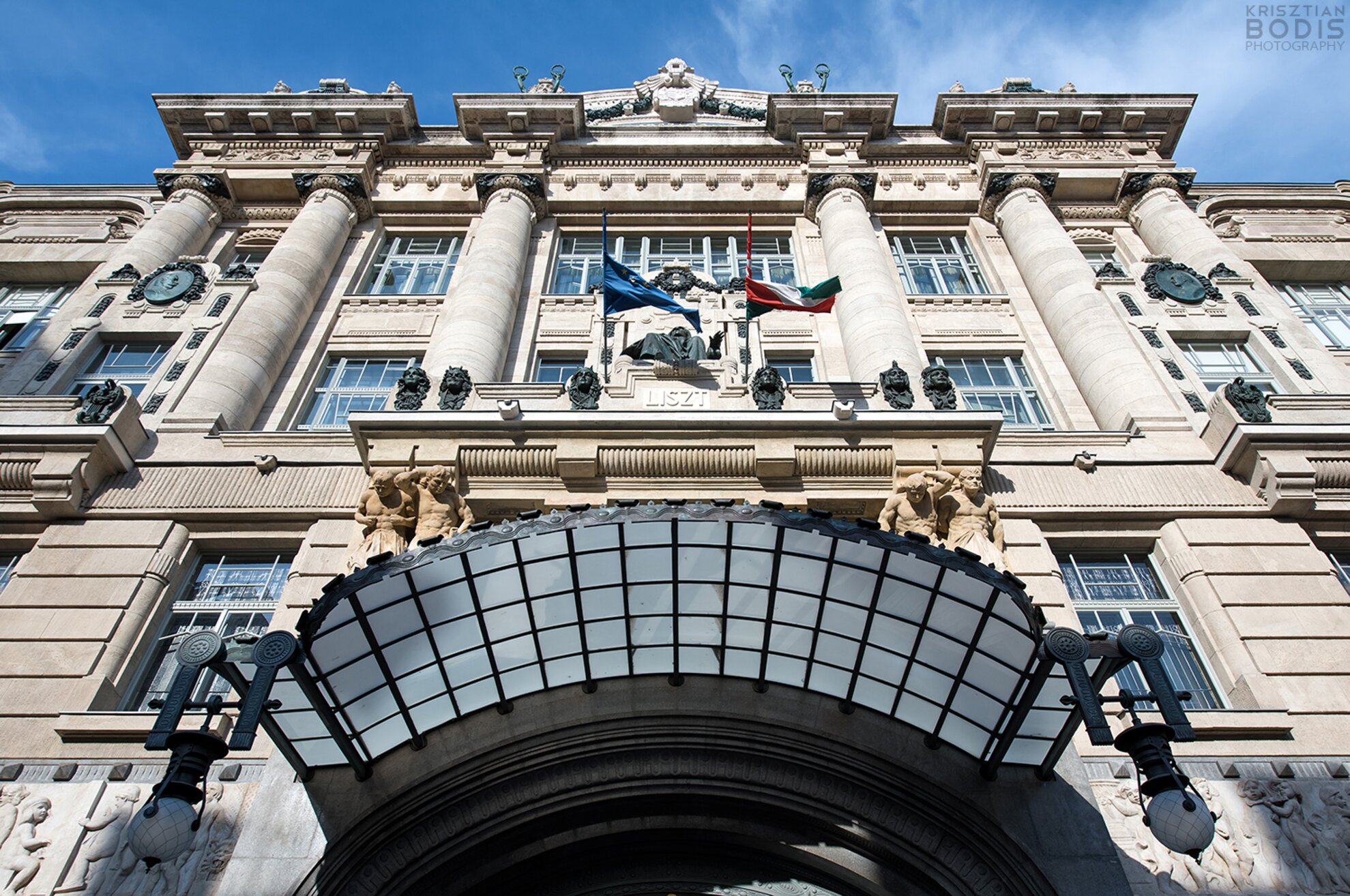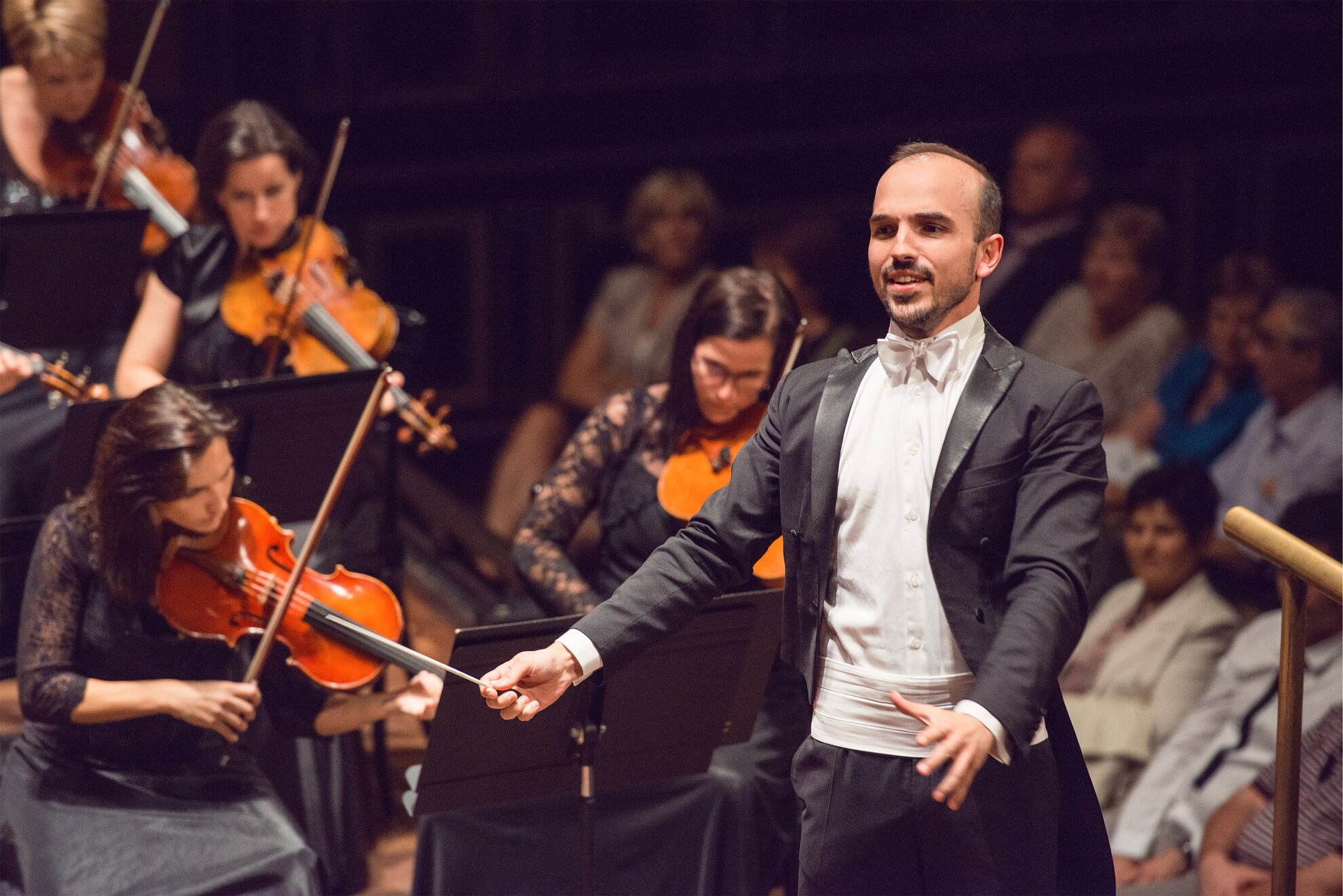
‘Special’ might describe a concert to celebrate an anniversary or a performance adapted for children. With one solitary show before the shutdown, Máté Hámori’s Danubia Orchestra Óbuda achieved both of those things and so much more – for their Beethoven Project involved marking the 250th anniversary of the famously deaf composer with a production especially adapted for the hard of hearing. As we reported last winter, special aids transmitted sound vibrations and spectators young and old were more intimately aligned with the instruments.
“Before it started, we were all slightly afraid,” admitted Hámori, sitting in the café of the Budapest Music Center where the Beethoven shows are now set to resume several months later. “We just didn’t know what to expect. Letting members of the audience sit in between the musicians, children, older people, everyone. But then we gave a little performance and they could feel the vibrations… It was the sheer power of music with or without notes. There was a little kid who was sitting right next to the kettledrums. and his whole face lit up when they resounded, it was just amazing.”
“To see everyone’s reactions was so moving. I was in tears, all the musicians were in tears. It was one of the most fabulous concerts of my whole career.”
Sadly, there would be no repeat performances until this weekend, 28-30 August. During the shutdown, like all other orchestras, groups, troupes and bands in Budapest, the Óbudai Danubia, under Hámori’s charge since 2013, managed to continue activities by streaming and videos. “I explained to them that playing is the same, whether it’s for online spectators or in a crowded concert hall – the same passion, energy and expertise are needed.”
“Obviously no-one can say how things are going to develop after the pandemic but the music industry has changed fundamentally. We have to think ahead. We have to work out how to create the streaming model so that it’s paid-for – already the industry was in flux, with CD sales dropping and fewer orchestras touring. We need to reach as many people as possible.”
“Here in Budapest, we are in a very lucky position, a city of two million people with seven orchestras and more financial support given than in other countries in terms of our GDP. That means there’s strong competition.”

After the weekend’s rescheduled Beethoven series, the Óbudai Danubia Orchestra have a run of performances at the Liszt Music Academy, starting with a show on 23 September. “So many orchestras perform the classics to guarantee a crowd,” said Hámori. “We’re testing the boundaries. I’ve deliberately chosen pieces that Hungarian audiences might be less familiar with, such as Charles Ives’ Central Park in the Dark.” The series runs through the autumn until December.
“I hardly ever get to perform Benjamin Britten, while László Lajtha’s Seventh ‘Revolution’ Symphony is closely linked to the events of 1956, yet many Hungarians don’t know it.”
With this in mind, Hámori is keen on developing a relationship between his orchestra and the wider public. “I want to focus on the local community, not just in Óbuda but in Hungary as a whole. Millions of people around the country have never attended a classical concert or know what it’s like. They’re cut off from the mainstream.”
Danubia Orchestra Óbuda
Beethoven Project at the Budapest Music Center, District IX. Mátyás utca 8.
Show for the hard of hearing, Saturday, 28 August, 10am. Register here. Further shows, 28-29 August, 7pm. Tickets and information here.
Concert series at the Franz Liszt Music Academy, District VI. Liszt Ferenc tér 8.
23 Sept, 26 Oct, 20 Nov, 18 Dec, all at 7.30pm. Tickets and information here.




